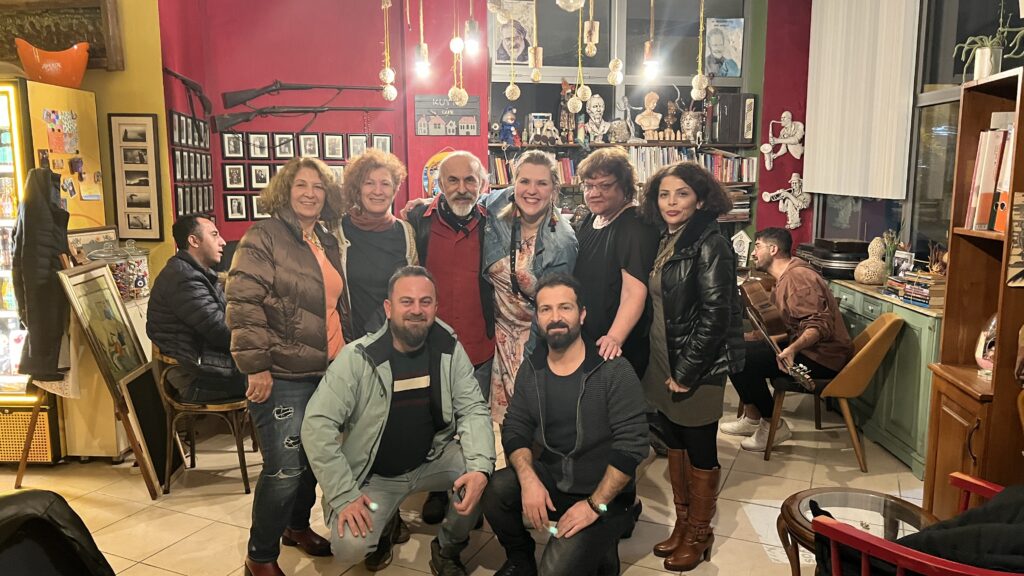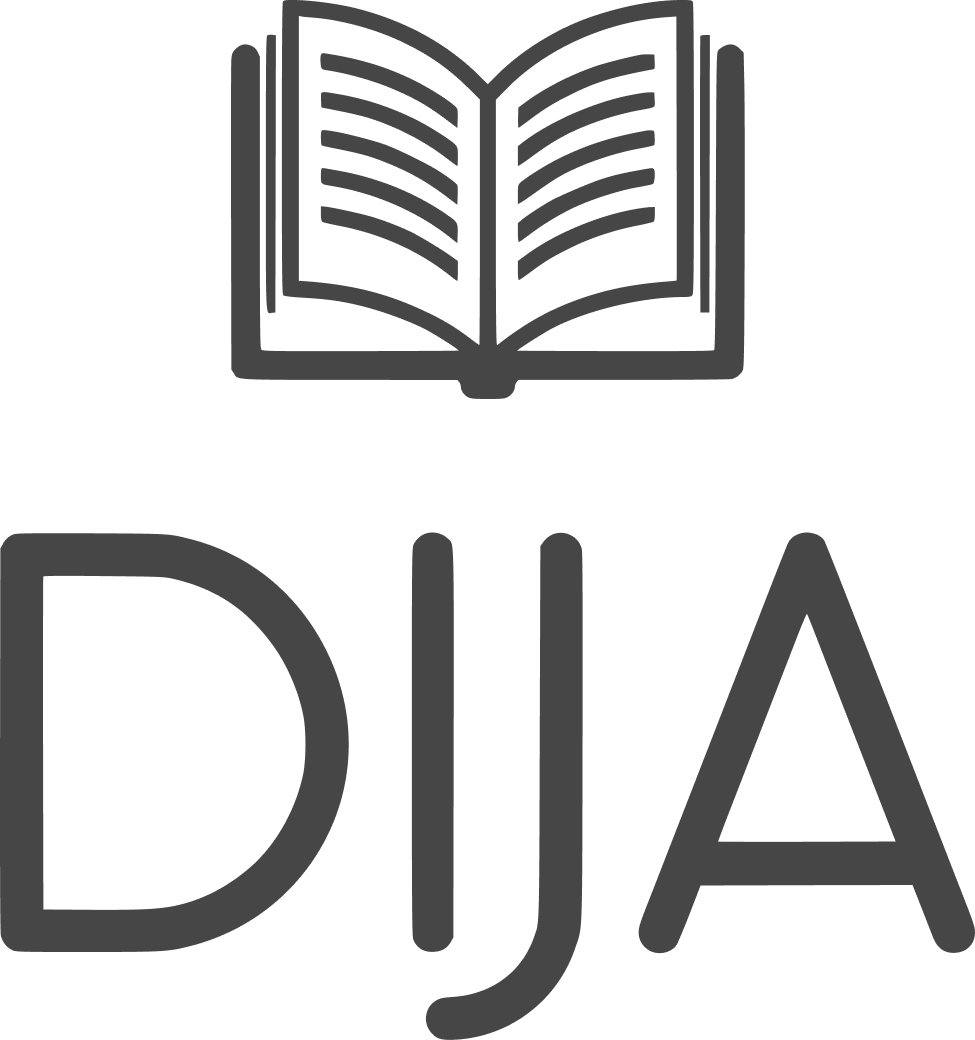Accreditation
ADU: Accreditation for and individual organization (2022-1-LV01-KA120-ADU-000111597)
23/05/2023 – 31/12/2027
Objectives:
Objective 1: Improve the digital skills and language skills of DIJA employees.
Objective 2: Enhance the quality of formal and non-formal adult education programs.
Objective 3: Increase opportunities for DIJA learners’ in adult education.
Objective 4: Understand the specifics of burnout in the education environment and acquire knowledge for its timely prevention.
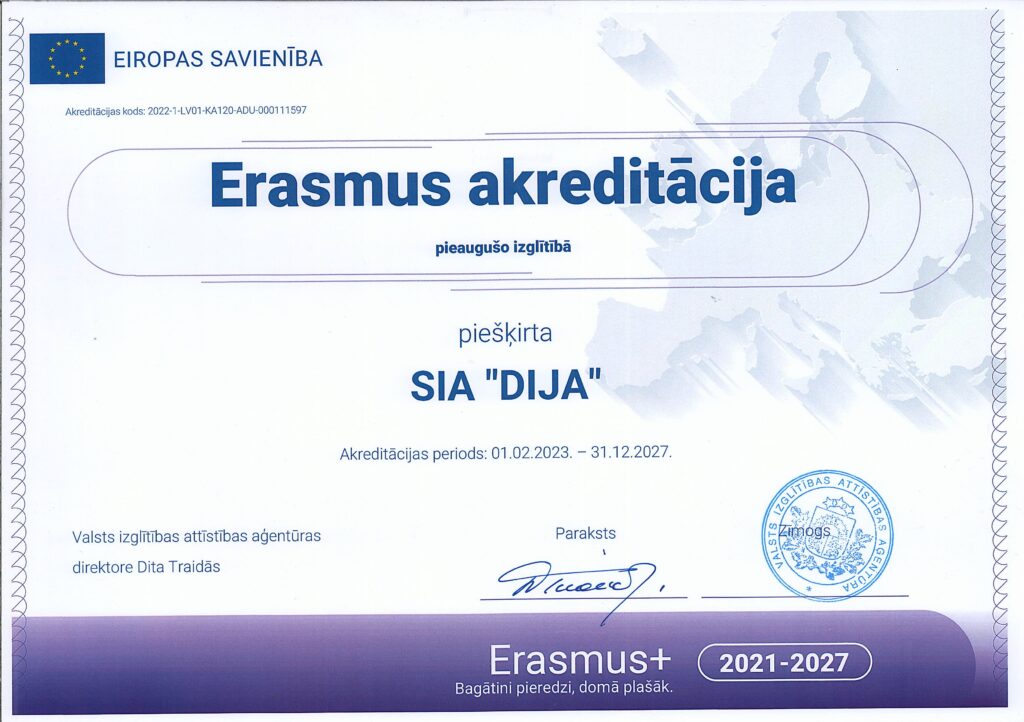
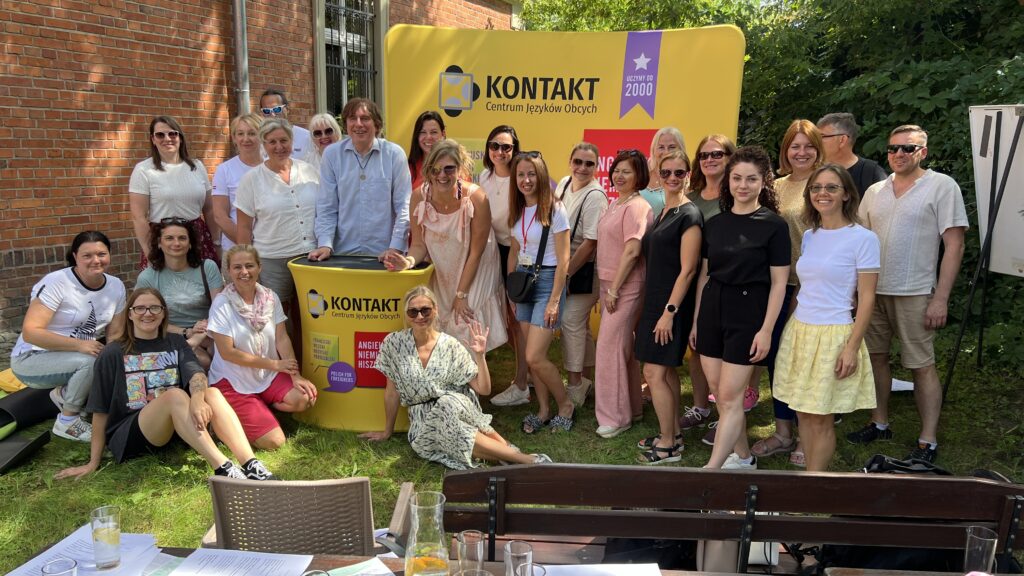
Improve the various skills of DIJA employees related to learning.
Develop digital skills of DIJA employees to increase the accessibility of services remotely, thus reaching a larger target audience and increasing DIJA’s competitiveness in the market. This was particularly relevant during the COVID pandemic when remote learning was the only viable option to continue providing educational lessons. Teaching employees the capabilities of various digital tools and seeing how they work in practice elsewhere would be a tremendous benefit for DIJA staff. This would make training more accessible, available, and relevant in current times.
Enhancing foreign language skills of DIJA employees, especially in English, would provide access to valuable materials in other languages and allow participation in international projects. This would broaden their perspectives and increase their understanding of the training culture, tools, and trends in other countries. Language skills would increase collaboration with foreign organizations and joint projects, as well as improve the performance of DIJA’s services.

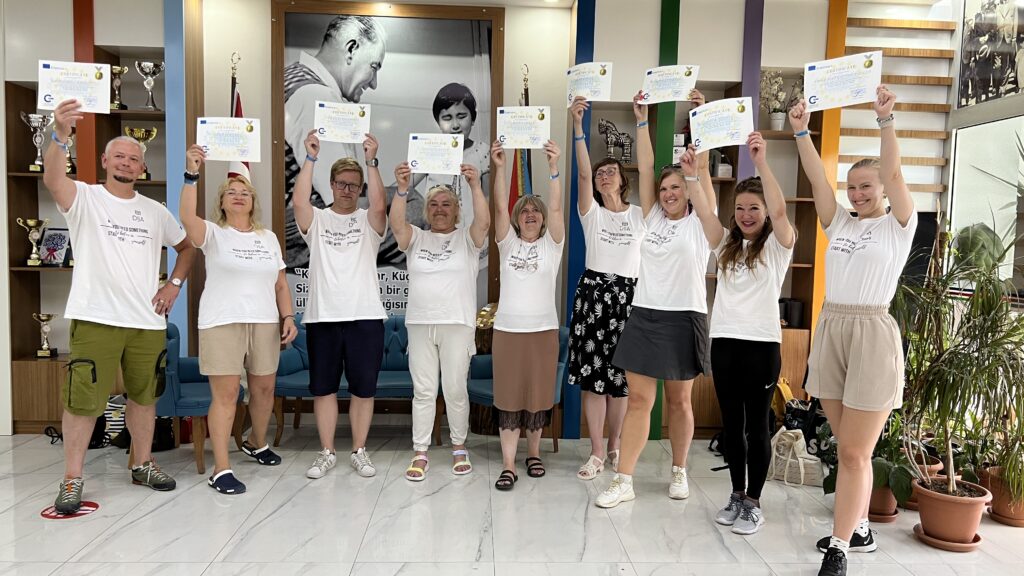
In addition to digital skills, there are many other necessary skills, such as time management, goal-setting, prioritization, conflict resolution, sustainable operations at DIJA, resource conservation, communication skills, and other competencies that would help employees create, manage, and/or organize a more professional learning process and acquire more knowledge to implement in their daily activities. The project’s objectives are planned to be implemented over the next five years, with annual activities aimed at enhancing the digital skills and language skills of DIJA employees.
Improve the quality of formal and non-formal adult education programs.
DIJA implements around 50 adult education programs, primarily based on formal education principles. In previous encounters with the advantages of non-formal education, we recognized that it could serve as a valuable tool to existing formal training methods, as well as an opportunity to develop new non-formal education programs for adults.
We wish to explore non-formal education methods and their application in the adult education process to incorporate them into DIJA’s daily activities, both for teaching adults and the DIJA employees. To enhance the quality of the programs, we aim to train teachers’ experiences regarding the program topics by introducing new methods and approaches, acquiring new knowledge and skills, and fostering positive attitude (through a mixed approach involving mobility, remote learning, and the involvement of international experts).
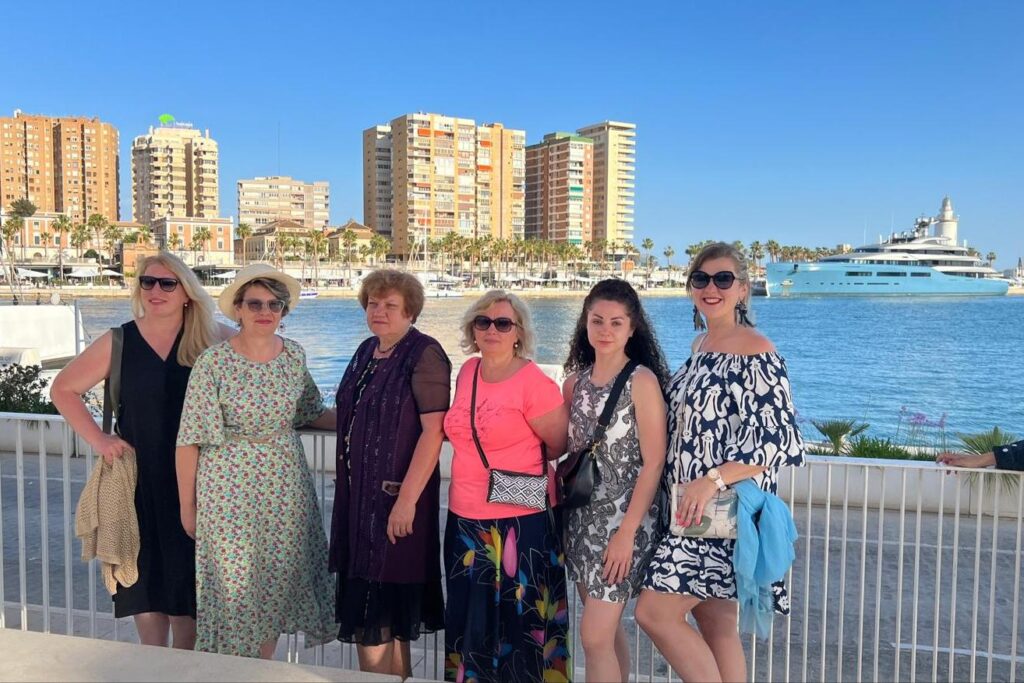
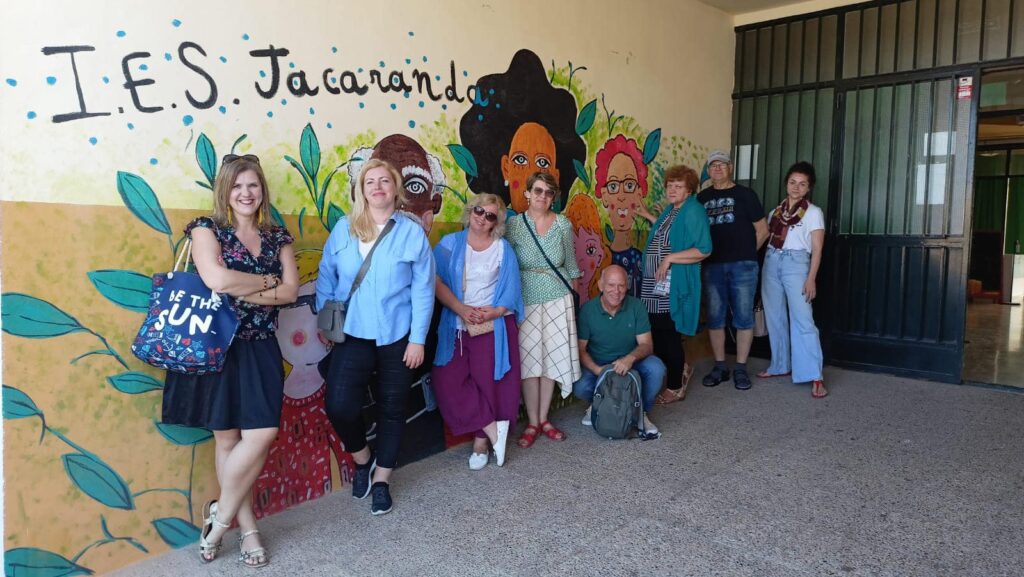
Improving the quality of existing programs and creating new ones will allow us to expand the range of training opportunities offered by DIJA and make learning more diverse, engaging a broader audience whenever possible. The project’s objectives are planned to be implemented over the next five years, with annual activities aimed at enhancing the quality of existing adult education programs and developing new ones.
Increase the opportunities for DIJA learners’ participation in adult education.
DIJA has been working with unemployed individuals for over 15 years, who are considered a group with fewer opportunities (especially long-term unemployed) and now also includes those who are neither studying, working, learning a trade, nor registered with the NVA as unemployed. Based on our previous experience, we aim to expand their opportunities to increase self-confidence, employment, and career prospects, improve foreign language and digital skills, and foster positive collaboration with others, potentially gaining first-time experience in an international project.
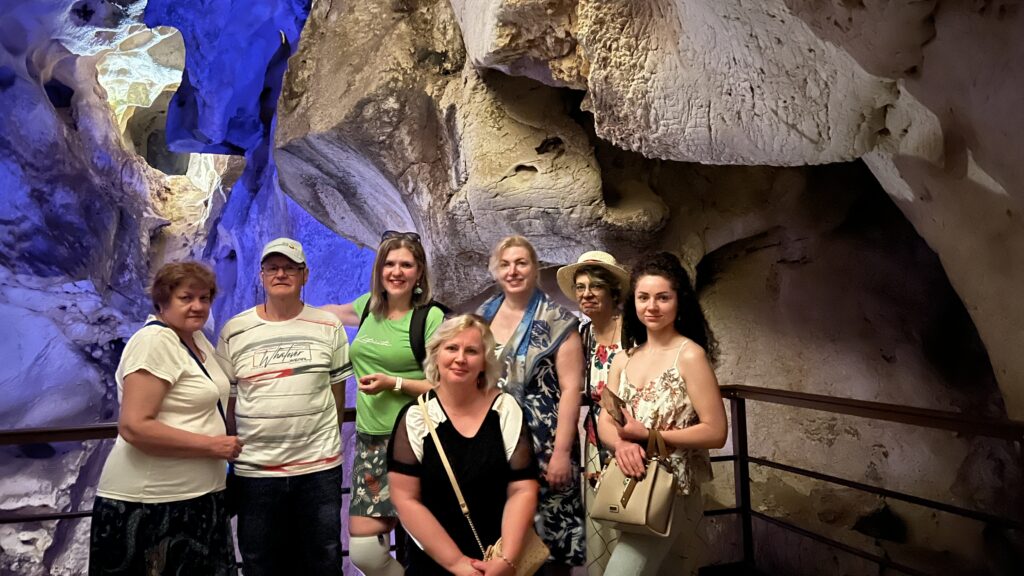
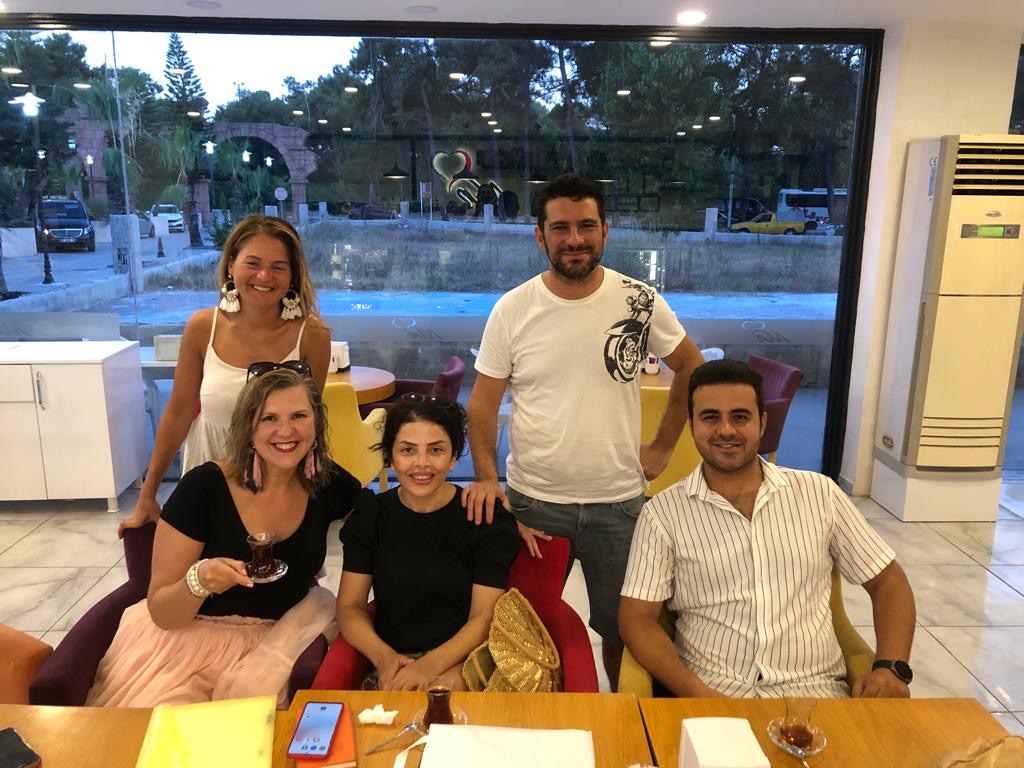
In addition to existing programs, we plan to involve them in additional group mobility activities to promote their knowledge, skills, and experiences, providing opportunities for positive experiences and motivation for future participation. We have identified this need through long-term collaboration with these groups. Additionally, we plan to continue successful cooperation with other groups with fewer opportunities (health issues, geographical and economic barriers, learning difficulties). We aim to implement these goals over the next five years, having at least one group activity each year for long-term unemployed individuals, low-skilled adults, or other groups facing fewer opportunities.
Understand the specifics of burnout in the education environment and acquire knowledge for its timely prevention.
Burnout among pedagogical staff is prevalent and requires additional attention. DIJA has encountered cases where educators were already in a state of burnout due to a lack of knowledge or methods to help, leading to the end of their professional career. Additionally, when educators are in a state of burnout or close to it, the learning process suffers, and classes lose their benefit and enthusiasm, as employees lack enthusiasm to make changes in their lessons.
To achieve this goal, at least one activity will be implemented each year focused on exploring burnout in the education sector and/or improving the work environment to reduce and/or eliminate the likelihood of burnout.
